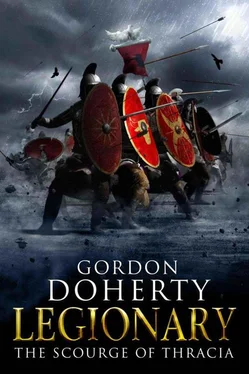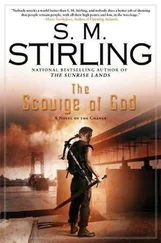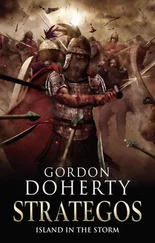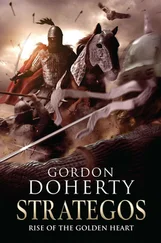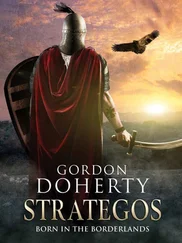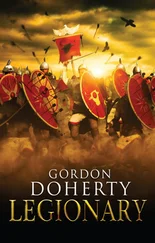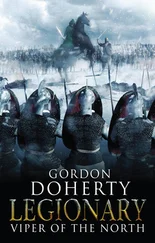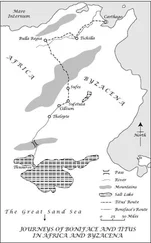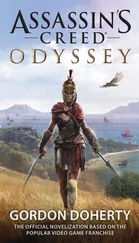Gordon Doherty - The Scourge of Thracia
Здесь есть возможность читать онлайн «Gordon Doherty - The Scourge of Thracia» весь текст электронной книги совершенно бесплатно (целиком полную версию без сокращений). В некоторых случаях можно слушать аудио, скачать через торрент в формате fb2 и присутствует краткое содержание. Год выпуска: 2015, Издательство: www.gordondoherty.co.uk, Жанр: Исторические приключения, на английском языке. Описание произведения, (предисловие) а так же отзывы посетителей доступны на портале библиотеки ЛибКат.
- Название:The Scourge of Thracia
- Автор:
- Издательство:www.gordondoherty.co.uk
- Жанр:
- Год:2015
- ISBN:нет данных
- Рейтинг книги:5 / 5. Голосов: 1
-
Избранное:Добавить в избранное
- Отзывы:
-
Ваша оценка:
- 100
- 1
- 2
- 3
- 4
- 5
The Scourge of Thracia: краткое содержание, описание и аннотация
Предлагаем к чтению аннотацию, описание, краткое содержание или предисловие (зависит от того, что написал сам автор книги «The Scourge of Thracia»). Если вы не нашли необходимую информацию о книге — напишите в комментариях, мы постараемся отыскать её.
The Scourge of Thracia — читать онлайн бесплатно полную книгу (весь текст) целиком
Ниже представлен текст книги, разбитый по страницам. Система сохранения места последней прочитанной страницы, позволяет с удобством читать онлайн бесплатно книгу «The Scourge of Thracia», без необходимости каждый раз заново искать на чём Вы остановились. Поставьте закладку, и сможете в любой момент перейти на страницу, на которой закончили чтение.
Интервал:
Закладка:
Something pinched at his heart. It was a dull sensation, something he had not felt in many years. Loss? You deplore it and yet you peddle it!
He tried to ignore the black voice, but it threw up memories of his actions in these last months. His jaw stiffened as he tried to fend off the images. There were certain people who could not resist digging, prying. That the thug he had paid to deal with the bothersome Felicia could only clumsily wound her meant he had been forced to strangle the thug then silence the bitch himself during the chaos of the Great Northern Camp’s fall. He felt that pinch at his heart again, then he remembered how this had stoked such sorrow in Pavo. A flicker of a movement came to his lips — a tortured, tight smile.
‘It has been a busy time, Dominus, ’ he replied. ‘Busy, but fruitful.’
Gratian sighed, eyeing the populace passing on the streets below with disdain. ‘And what of the other matter. Did you find some trace of the other one?’
Dexion brightened at this. ‘Tribunus Gallus? Why, yes, Dominus. Indeed, I have brought him to you as a prize.’
Gratian’s lips broke back into that avid grin. ‘He is here? ’
Dexion nodded. ‘He is outside this very room, Dominus. It was an arduous undertaking, leading him here, but I know you have been waiting a long time to have him in your presence. Though it would have been easier had you allowed me to open his throat back in Thracia.’
Gratian cocked an eyebrow as if at once both impressed and concerned for his agent. ‘As you once so deftly dealt with his wife and boy?’
Dexion nodded, his mind flashing back to that shadowy night near Mediolanum when he had slain the mother and child. After so many years of training, it had been his first true assignment in his time with the Speculatores and one he remembered with pride. It had sealed that interminable bond.
‘That cur outside was a bane of my father’s reign,’ Gratian said with a wavering voice through gritted teeth. ‘He supported the senatorial dogs who stood against Emperor Valentinian and then evaded every blade sent to end his miserable life.’
‘So what is to be done with him, Dominus?’
Gratian’s eyes ignited with a rapacious fire. ‘Bring him to the lower chambers. I will enjoy this. . ’
Glossary
Ambulatum; Legionary ‘maneouvres’ training in which soldiers would take part in mock missions, marching in full kit over difficult terrain at military or full step. Cohorts would often be pitted against one another, tasked with outflanking or ambushing their comrades in an effort to test and strengthen each unit’s hardiness and readiness for real battle.
Auxilium Palatinum (pl. auxilia palatina); These elite infantry regiments of the late Roman Empire served as the emperor’s core guard in his Praesental Army . Auxilia palatina legions would have been distinct in their appearance, with many retaining some unique decorative symbol on their armour that nodded to their origins, e.g. the Cornutii wore horns (or more likely feathers) on the sides of their helmets, just as the barbarian tribe they were originally recruited from did.
Ballista (pl. ballistae); Roman bolt-throwing artillery that was primarily employed as an anti-personnel weapon on the battlefield.
Buccina ; The ancestor of the trumpet and the trombone, this instrument was used for the announcement of night watches and various other purposes in the legionary camp.
Castrum (pl. castra); Fort or fortified camp.
Chi-Rho ; The Chi Rho is one of the earliest forms of Christogram, and was used by the early Christian Roman Empire. It is formed by superimposing the first two letters in the Greek spelling of the word Christ, chi = ch and rho = r, in such a way to produce the following monogram;

Clibanus; A small clay oven used by legionaries to bake bread.
Comes ; Commander of a field army of comitatenses legions.
Comitatensis (pl. comitatenses) ; The comitatenses were the Roman field armies — a ‘floating’ central reserve of legions, ready to move swiftly to tackle border breaches. These legions were considered the cream of the late Roman army, second only to the palatine legions in the Praesental Army .
Contubernium (pl. contubernia) ; A grouping of eight legionaries (ten contubernia per century). These soldiers would share a tent and would receive disciplinary action or reward as a unit.
Cubiculum; Bedchamber.
Culina; Kitchen.
Cursus Publicus ; The imperial courier system facilitated by state-funded roads, waystations, stables and dedicated riders. The riders were tasked with carrying messages all over the empire.
Diocese; An administrative and geographical division of the later Roman Empire. Each Diocese contained a collection of provinces.
Dominus; A respectful honourific indicating sovereignty.
Eques (pl. equites) ; Roman light cavalry, used for scouting ahead and screening the flanks of a marching legionary column.
Fabrica (pl. fabricae) ; The workshop of a Roman legion located within the legionary fort or camp. Skilled artisans and craftsmen such as engineers, carpenters, masons, wagon-makers, blacksmiths, painters and other artificers worked in the fabrica , using devices such as smelting furnaces and water cisterns to produce arms and equipment for the legionaries.
Falcata ; A curved blade used for slashing down over defending shields so the point could pierce the skulls of the defenders.
Follis (pl. folles) ; A large bronze coin introduced around 294 AD with the coinage reform of Emperor Diocletian.
Funditor (pl. funditores) ; Unarmoured Roman slingers who would take part in the skirmishing before a battle.
Horreum (pl. horrea) ; The Roman granary and storehouse for other consumables such as wine and olive oil.
Iudex; The fourth century Goths did not have kings as such. Instead, each tribe — led by a reiks — would elect a ‘judge’ or ‘iudex’ who would steer them through a period of migration or conflict.
Imperator ; Title of the Roman Emperor.
Insulae; The often architecturally-unsound tenement blocks of the empire’s urban sprawls.
Intercisa ; Iron helmet constructed of two halves with a distinctive fin-like ridge joining them together and large cheek guards offering good protection to the face. The illustration on the cover provides a good example of this style of helm.
Latrunculi; A Roman board game. Known as ‘the Game of Brigands’, it was vaguely analogous to modern Draughts, and is thought to have been useful for teaching military manoeuvres and tactics.
Libra; The Roman measurement of weight roughly equivalent to the modern pound.
Lilia; Pits filled with sharpened stakes dug into the earth outside Roman fortifications. Often hidden or covered by foliage, these pits were the bane of any attacking army.
Limes (pl. limites) ; The Roman frontiers, studded with forts, military roads, choke points and walls. These borders would be manned by the limitanei legions.
Limitaneus (pl. limitanei) ; The limitanei were the frontier soldiers, light infantry spearmen who served in the legions posted along the empire’s borders.
Mithras ; A pagan deity particularly loved by the legions — probably something to do with the belief that Mithras was born with a sword in his hand! In the late 4 thcentury AD, Christianity had taken hold in most of the major imperial population centres and it was only in remote areas like the limites that the last worshippers of Mithras were to be found. The cult of Mithras is thought to have evolved from the Persian Mithra, the God of Light and Wisdom. Also, although Mithras is often described as ‘Deus Sol Invictus Mithras’, he is not to be confused with Sol Invictus (the God of the official imperial cult established by Emperor Aurelian).
Читать дальшеИнтервал:
Закладка:
Похожие книги на «The Scourge of Thracia»
Представляем Вашему вниманию похожие книги на «The Scourge of Thracia» списком для выбора. Мы отобрали схожую по названию и смыслу литературу в надежде предоставить читателям больше вариантов отыскать новые, интересные, ещё непрочитанные произведения.
Обсуждение, отзывы о книге «The Scourge of Thracia» и просто собственные мнения читателей. Оставьте ваши комментарии, напишите, что Вы думаете о произведении, его смысле или главных героях. Укажите что конкретно понравилось, а что нет, и почему Вы так считаете.
